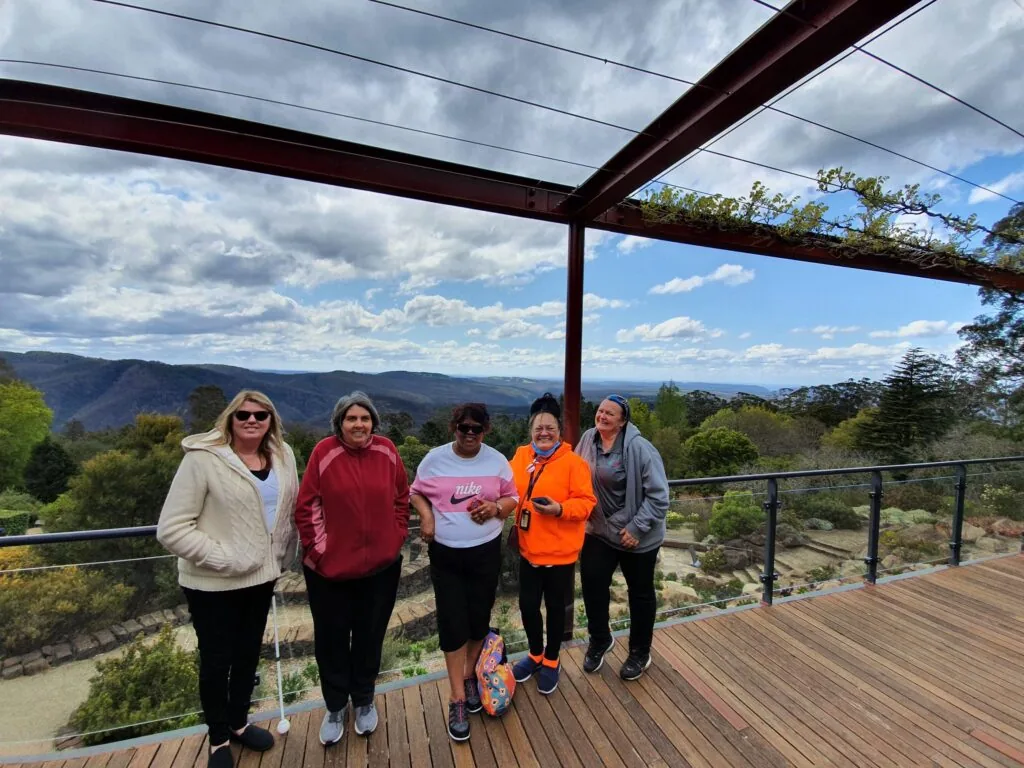
Today is #WorldMentalHealthDay, and it comes at a time when our daily lives have changed considerably as a result of the COVID-19 pandemic. The past months have brought a diverse set of challenges for many of us. But for those living with mental health conditions and disabilities, those challenges have been considerable, with many experiencing even greater social isolation than before.
We recently spoke to one of our western Sydney participants, Jacqueline Miller, who has graciously shared her experience living with schizophrenia, and details what these past few months have been like for her. Jacqueline hopes sharing her story will shed light on what living with a mental health condition is really like and break down the stigma.
1. Tell me about the first time you sought help for mental illness?
In 2009, I had awful hallucinations. I was reduced to tears and had to urgently see my GP in Seven hills. She referred me to the mental health team at Blacktown Hospital at Bungaribee house. I saw a psychiatrist there and they diagnosed me with schizophrenia.
2. What were the factors that contributed to your illness?
I was working as an administrator back in 2009. My schizophrenia wasn’t necessarily triggered by a certain event. It came with no warning. No one in my family has any mental illnesses, so it isn’t hereditary. It came out of the blue when life was a little bit stressful.
3. How did you feel when you received a diagnosis?
I was very scared. I was put on medication straight away. I felt immediately very different to everybody else in my family and at work. I felt alone. I found it was very hard for me to be motivated in life, to do anything around the house or go to work. I stopped working in 2010 – less than 12 months after my diagnosis. Work suggested I retire and advised me they no longer thought I was fit to work. After I was dismissed, I lost all motivation. Ever since my diagnosis, life has been challenging. I have frequent episodes of severe depression, anxiety, psychosis, and insomnia.
4. How have you coped with isolation?
I can’t say that I cope well with isolation, but unlike everyone else, isolation isn’t something new to me.
I live with schizophrenia and a psychosocial disability, which means this condition is life-long. This means I find it very difficult to go out into the community and struggle with confidence. Spending a lot of time by myself is a life I’ve grown used to.
I’m grateful for my consistent support team and the services I receive at Therapy Care through my NDIS package.
During low periods, where I struggle with isolation, the best thing for me to do is take my medication methodically, receive psychosocial intervention through my support services at Therapy Care, have regular check-ups with my psychiatrist and routine visits with my GP and psychologist.
Even if it’s just once a week for now, getting out into the community is very important to me. The interaction with my support worker is also an activity I always look forward to.
I am very fond of the Therapy Care workers and am working with them to create goals for my next plan period that will steadily see me continue to improve my overall quality of life.
5. What do you want people to know about your mental illness?
There is so much people don’t know about schizophrenia which unfortunately results in a lot of stigma towards people living with the condition. I hope in the future, people invest more time in trying to understand the illness.
If you or a loved one is suffering with your mental health, don’t be afraid to seek help. There are so many supportive people and resources out there readily available to you. The quicker you ask for help, the quicker you receive the support you need. You shouldn’t be alone.
6. What would you like to say about the stigma surrounding mental illness?
At times I feel aggressive, but it’s never directed towards anyone else – it’s frustration at myself.
I always try to be a lovely and kind person and many people describe me this way, perhaps just withdrawn at times. Making friends and trying new things is difficult, however now that I have a great support team and am on the right service plan, I can access the community and live a quality life.
Schizophrenia can be scary for the person diagnosed, the fear of being rejected from the community is overwhelming.
This is a life-long condition, and I will always continue to work on myself.
7. Has your life changed since receiving NDIS supports through Therapy Care?
Yes, it really has. Before joining Therapy Care, I wasn’t receiving the right support for my mental health condition and therefore was quite withdrawn and led a very isolated life.
Since receiving support, it has been one of my main goals to become more social and feel more comfortable being out and about.
I’m working with Therapy Care’s Recreational Therapist, Karlie Scurr, to integrate into the community through the Group Day Program and social supports.
I currently attend the mind-full stream of the Group Day Program once a fortnight. In addition, I have two social support sessions each week, where with my support worker, participate in meaningful leisure and recreational activities.
I also attend the 2-hour Group Rehab session each week, where I work on my physical fitness alongside fellow participants.
My ultimate dream was visiting the Royal Botanic Gardens, which Therapy Care recently made a reality. It was a beautiful day.
